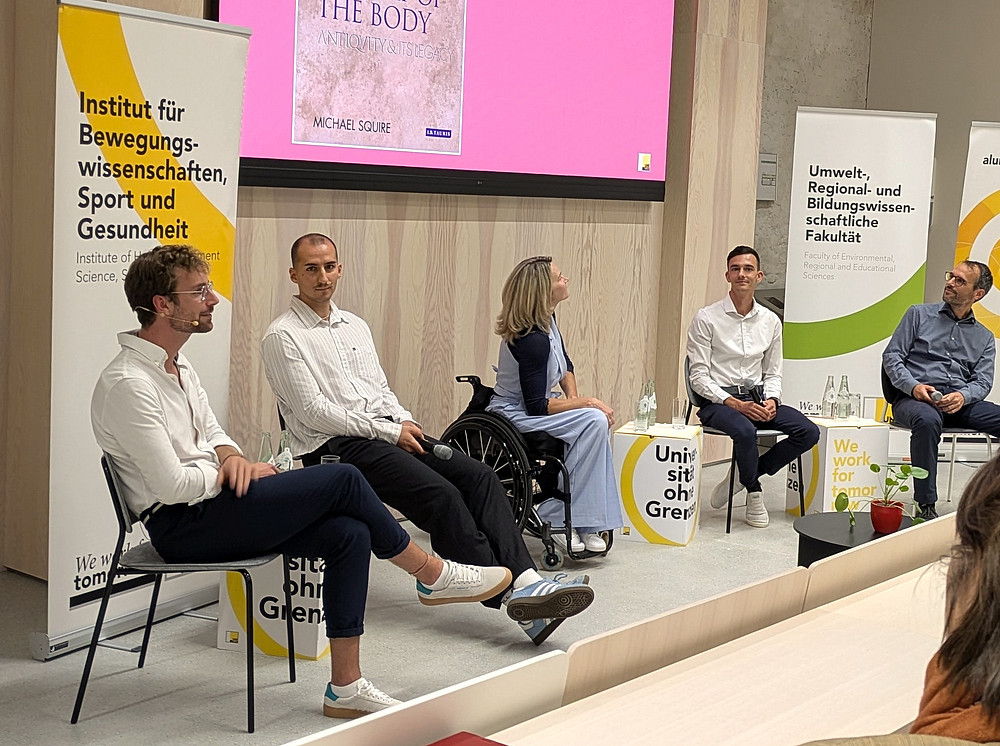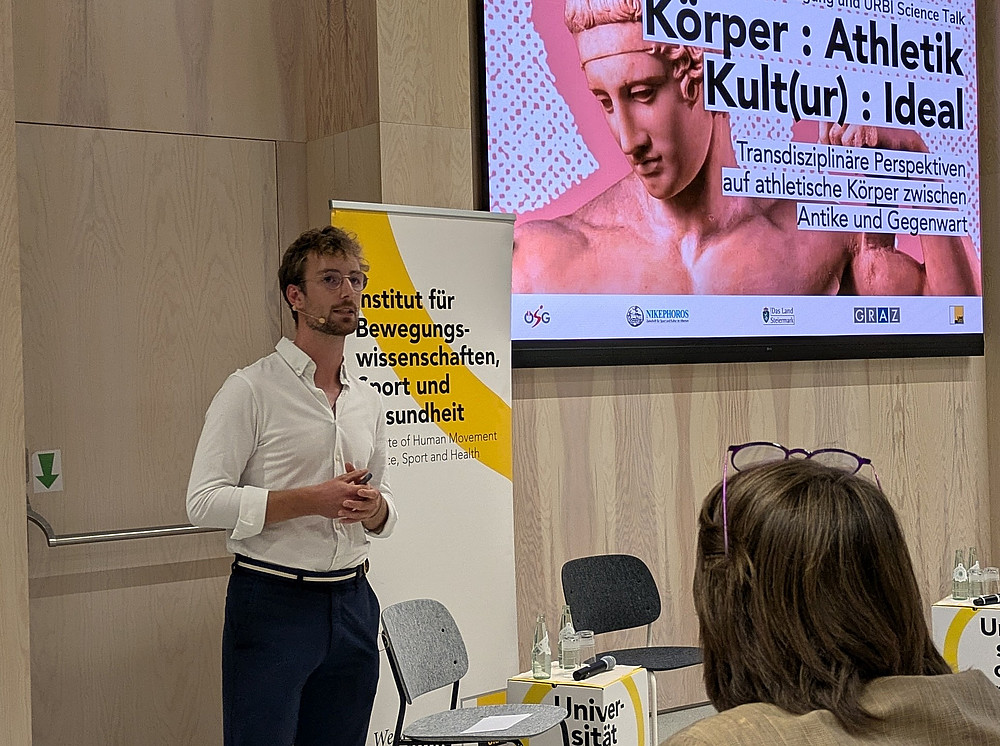Young researcher Tarik Orliczek provides impetus for conference on the reception of ancient body images
The conference "Körper : Kult(ur) : Athletics : Ideal" was a success - not only in terms of content, but also on a personal level: for Tarik Orliczek, junior researcher and member of the "Plurality and Diversity" cluster, it was the first conference in which he played a key role in the organisation.
The origin of the idea for the conference "Körper : Kult(ur) : Athletics : Ideal" lies in a subordinate clause. "Tarik, why don't you do it!" was the casual response last year during an international symposium with colleagues on the topic of "Embodied History". However, Tarik Orliczek from the Institute of Human Movement Sciences, Sport and Health took this assignment seriously and organised the conference, which recently took place on 25 and 26 September 2025 - as a junior research project and as a joint conference of the Institute of Human Movement Sciences, Sport and Health and the Institute of Ancient Studies at the University of Graz.
"I am very pleased that I was given this vote of confidence from several sides - as I had not yet completed my doctorate and had not been in Graz for very long at the time," emphasises Tarik Orliczek, who organised the conference with the support of Cluster members Sebastian Ruin, Christoph Kreinbucher-Bekerle and Werner Petermandl.
Physicality in the reception of antiquity
The transdisciplinary conference was jointly organised by the Department of Physical Education and Sport Pedagogy and the Department of Ancient History and Epigraphy. It brought together experts from various disciplines, including sports education, history and ancient history, cultural studies, medieval studies, art history, sports history, Greek studies, English studies and gender studies.
The conference dealt with the central theme of corporeality in the reception of antiquity. It centred on the questions of what corporeality meant in antiquity, how bodies actually become "classical" bodies and what role ancient representations of the body played and still play in different areas of society and at different times. "What is depicted are normatively charged images. And if the Western world overgeneralises the so-called ancient world as the cradle of its own civilisation in democracy, drama, sport and other areas, then this is not only associated with authority and legitimacy, but also with exclusion and certain restrictions on participation - an important topic for sports education in particular," summarises Tarik Orliczek.
The panel discussion in the form of a "URBI Science Talk" was attended by scientists as well as prominent guests from the world of sport, such as the three-time handbike world champion and Paralympian Svetlana Moshkovich and the successful participant in the German TV show "Ninja Warrior", Dennis Leiber, who contributed to the publicity.
Looking back, Tarik Orliczek himself considers the conference a success. "Organising a conference that consists purely of interesting presentations - I should do that more often!" he confirms with a wink.

Maximilian Tarik Orliczek
+43 316 380 - 3874
Institut für Bewegungswissenschaften, Sport und Gesundheit
nach Vereinbarung
https://bewegungswissenschaften.uni-graz.at/de/
